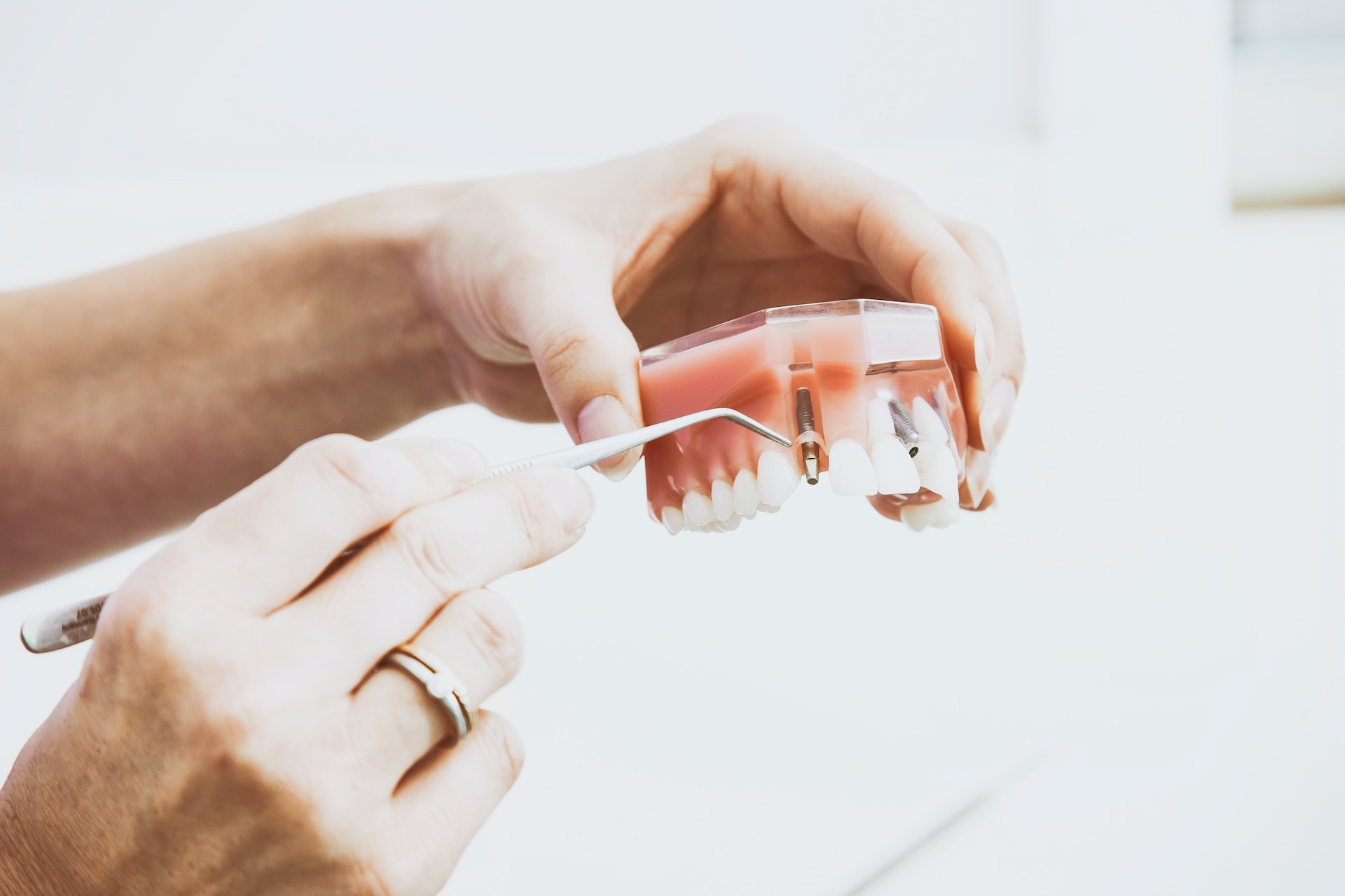Feb
6

Experiencing receding gums can be both irritating and uncomfortable – from increasing tooth sensitivity to making your mouth more susceptible to infection, having your gums recede from your teeth can cause a multitude of dental issues. The good news is that there are several treatments available to help limit the effects of receding gums, and prevent the issue from worsening over time.
So, what’s the best treatment for receding gums? In this blog, we’re going to take a look at the best ways to treat receding gums, how to slow down gum recession, and how to prevent it from occurring if you have gum disease. Let’s take a look!
What are receding gums?
Receding gums occur when the gums around your teeth slowly pull back or wear away from your teeth. This usually causes the gum line to descend, exposing more of the tooth and making it more likely that bacteria will enter the area and cause infection.
How to know if I have receding gums?
Normally, your dentist will be able to identify any receding gums during your routine check-ups. You may also notice receding gums due to a sudden increase in tooth sensitivity; as the tooth root isn’t protected with enamel, you may experience discomfort when eating or drinking hot and cold foods. You may also see a visible ‘pocket’ along the gum line which is usually a sign of gum recession. In more severe cases, you might experience pain or even bleeding when brushing your teeth.
Read Next: How Can You Rebuild Receding Gums?
What causes receding gums?
Receding gums can be caused by a number of factors, but the most common include the following:
Gum disease
Gum disease is an inflammatory dental condition caused by chronic plaque on the teeth, and can cause increased tooth sensitivity, loose teeth or tooth loss, bad breath, and more. Gum disease is also the primary cause of receding gums, as the plaque can destroy the gum tissue over time. If your gum recession is caused by gum disease, it can often be difficult – but not impossible – to improve it.
Brushing too hard
If you’re too vigorous when brushing your teeth, you can end up destroying the enamel on your teeth and causing your gums to recede. While it’s important to brush your teeth thoroughly, you should never brush so hard that your gums end up bleeding; stick with a gentle pressure.
Poor dental hygiene
Poor brushing habits, a lack of flossing, or skipping your dental check-ups can all have a detrimental effect on your oral hygiene, and this includes the development of receding gums. It’s also important to note that smoking tobacco products can also cause receding gums, as the toxins in the smoke can damage and weaken the gum tissue.
Best treatments for receding gums
So, what’s the receding gums treatment? In general, your treatment will depend on the severity of your gum recession:
Gum grafts
If your gum recession is severe, a gum graft procedure can be done to restore the lost tissue and prevent further damage to your teeth and gums. This is achieved by taking tissue from elsewhere on your gums and grafting it over the areas where gum tissue was lost. If you don’t have enough gum tissue left to graft, some can be taken from elsewhere in your mouth – most likely the roof of your mouth.
Deep cleaning
Another treatment used to reverse the appearance of receding gums is a deep cleaning, often referred to as root planing or tooth scaling. This procedure involves a dentist peeling back the gums, removing any plaque and tartar, before smoothing the gums down again. This treatment can help to prevent bacteria from sticking to the gums and destroying gum tissue, preventing further gum recession from the teeth. Deep cleaning is usually recommended for milder cases.
Also Read: How to Treat Swollen Gums?
Can receding gums be reversed?
Currently, there are no non-surgical treatments available that can completely reverse receding gums, and you can’t grow your gums back once the tissue has been destroyed. However, as explained above, there are several effective solutions that can help slow down the progression of gum recession and even restore lost tissue from existing gum recession. A gum graft treatment is best for severe cases, while good hygiene habits and deep cleaning treatments can help to slow down those dealing with milder cases.
How to prevent receding gums
Like with any dental issue, the best piece of advice when it comes to combating receding gums is to focus on prevention, ideally before any issues develop. One of the best ways to prevent receding gums is to avoid developing gum disease, which is the primary cause of gum recession.
To avoid gum disease, it’s important to maintain a daily oral hygiene routine that includes brushing with fluoride toothpaste twice a day and flossing per your dentist’s recommendations. You should also avoid tobacco products and limit sugary food and drink, while also making sure to attend your dental check-up every 6 months. Doing so will allow you to tackle any plaque build-up, but also give your dentist the opportunity to identify any early signs of gum disease, allowing you to take quick action and prevent it from worsening over time.







